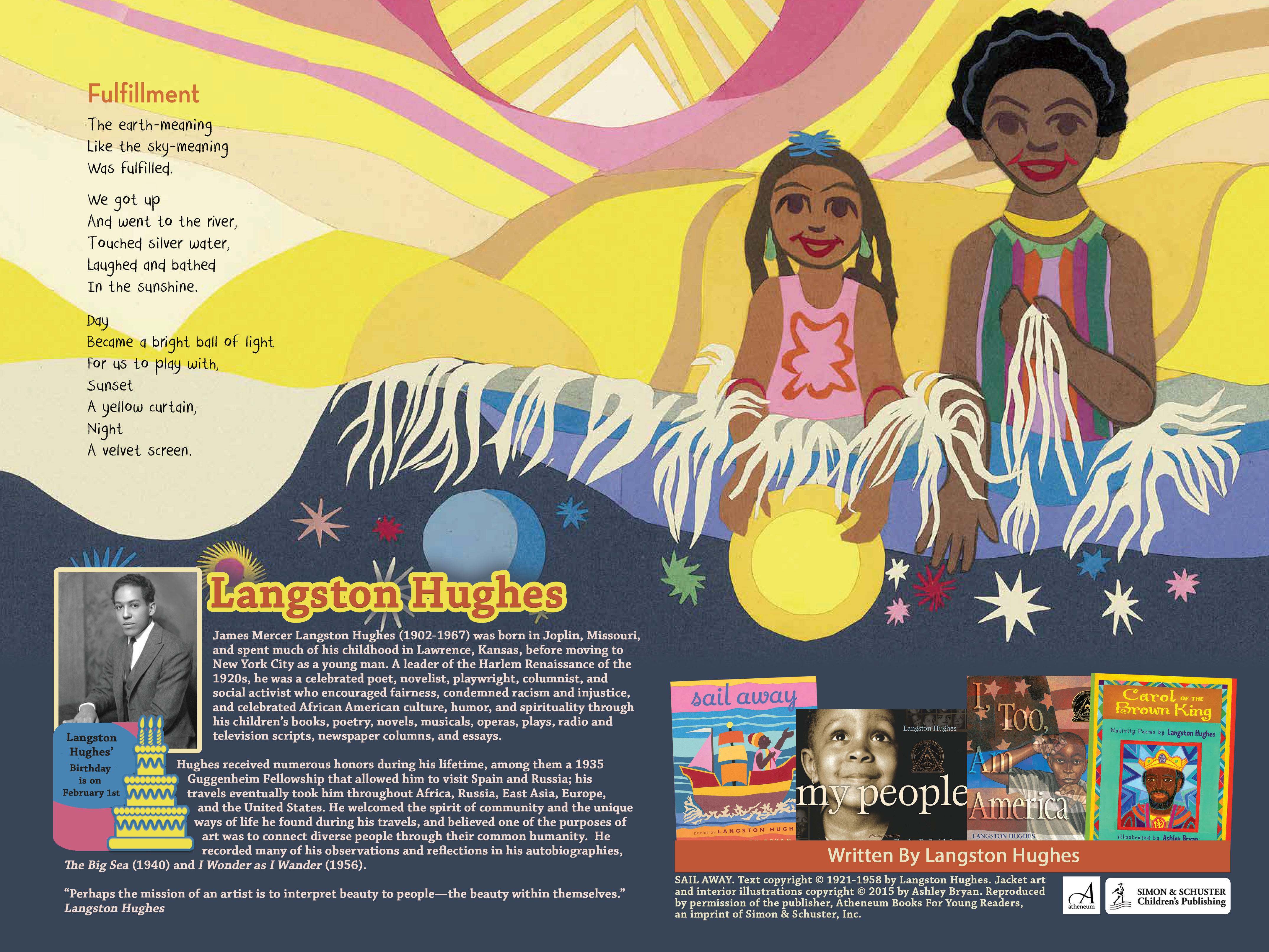



James Mercer Langston Hughes (1902-1967) was born in Joplin, Missouri, and spent much of his childhood in Lawrence, Kansas, before moving to New York City as a young man. A leader of the Harlem Renaissance of the 1920s, he was a celebrated poet, novelist, playwright, columnist, and social activist who encouraged fairness, condemned racism and injustice, and celebrated African American culture, humor, and spirituality through his children’s books, poetry, novels, musicals, operas, plays, radio and television scripts, newspaper columns, and essays.
Hughes received numerous honors during his lifetime, among them a 1935 Guggenheim Fellowship that allowed him to visit Spain and Russia; his travels eventually took him throughout Africa, Russia, East Asia, Europe, and the United States. He welcomed the spirit of community and the unique ways of life he found during his travels, and believed one of the purposes of art was to connect diverse people through their common humanity. He recorded many of his observations and reflections in his autobiographies, The Big Sea (1940) and I Wonder as I Wander (1956).
“Perhaps the mission of an artist is to interpret beauty to people—the beauty within themselves.” Langston Hughes